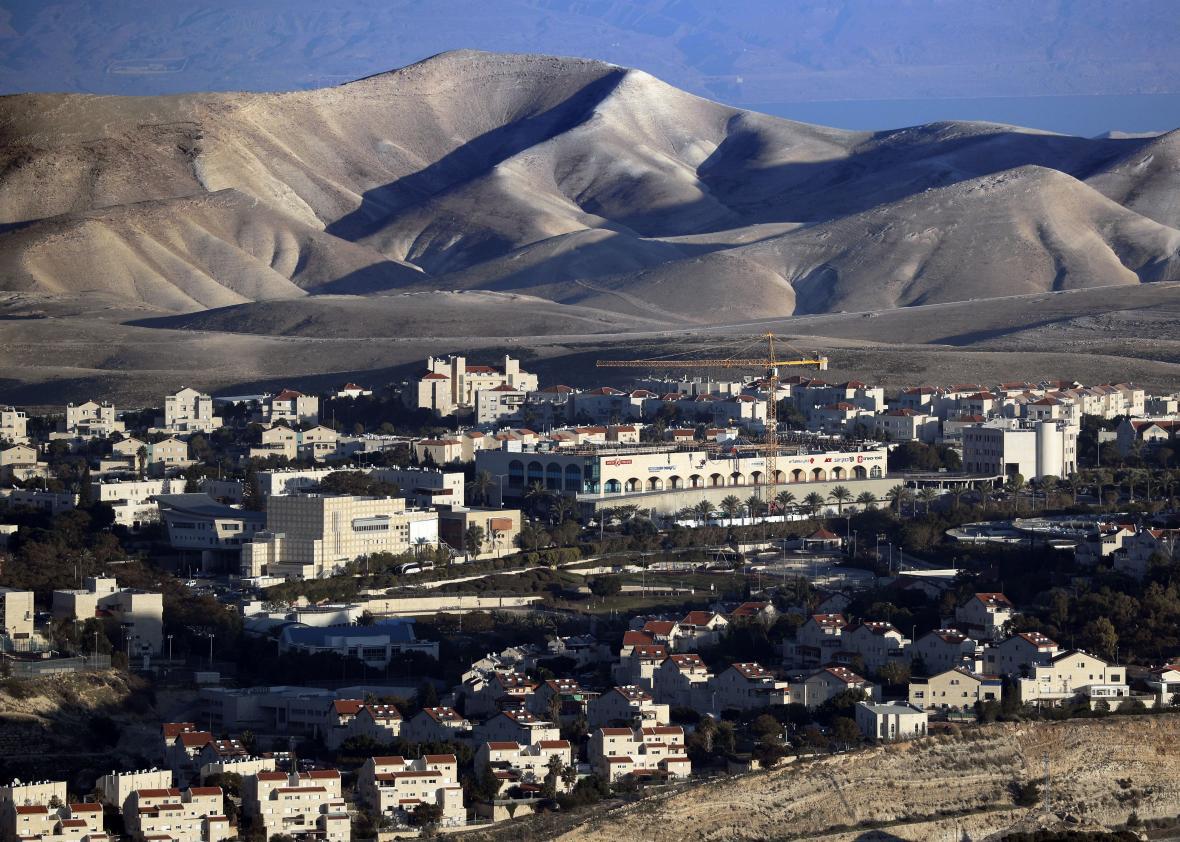Israel has approved the construction of 2,500 new housing units in West Bank settlements. Less than a week ago, such a move would have provoked the ritual condemnation from the State Department, but, obviously, we’re in a new world now. Today’s move followed a decision on Sunday to lift restrictions on 566 new housing units in a contested part of East Jerusalem. Construction in those areas had been opposed by the U.S. government, but a statement put out by the Israeli government quoted Prime Minister Benjamin Netanyahu as saying, “We can build where we want and as much as we want.”
Most of the settlement construction approved Tuesday is within settlement blocs that Israel has planned to keep as part of a future agreement establishing a Palestinian state, but as Haaretz notes, a fair number of them are outside those blocs. Netanyahu said over the weekend that he hopes to eventually extend Israeli sovereignty over all settlements.
If sometimes it’s unclear what is a legitimate “Trump effect” and what is not, this is not one of those times. Trump not only promised an improvement in U.S.-Israeli relations, his campaign explicitly rejected the notion that settlement building is an obstacle to peace or that Israel is occupying the West Bank. His pick for ambassador to Israel, his bankruptcy lawyer David Friedman, has raised millions for pro-settlement groups. It’s not surprising that settlement advocates in Israel see Trump’s victory as a green light for unfettered settlement and territorial expansion for “Greater Israel.” “The era of the Palestinian state is over” education minister and leader of the pro-settler Jewish Home Party Naftali Bennett said after Trump’s win.
Netanyahu is likely a bit less enthusiastic. While there are reasons to doubt the prime minister’s seriousness about the two-state solution, he’s not that excited about Bennett’s greater Israel dreams either, preferring to maintain the status quo. American pressure was a convenient scapegoat for Netanyahu to slow down settlement expansion without angering the right. Now, the brakes are off, and the settlers expect action.
Some settlers were actually disappointed with Tuesday’s decision. The Yesha council of settlements called the new construction insufficient to meet demand, saying in a statement, “The American government has changed and Israel’s policies also need to change. The Israeli government needs to approve all the plans currently on the table and issue bids to build in all of Judea and Samaria, Shomron and the Jordan Valley.”
After years of Netanyahu courting the settlers, and blaming Obama for delays, they now expect him to follow through.
